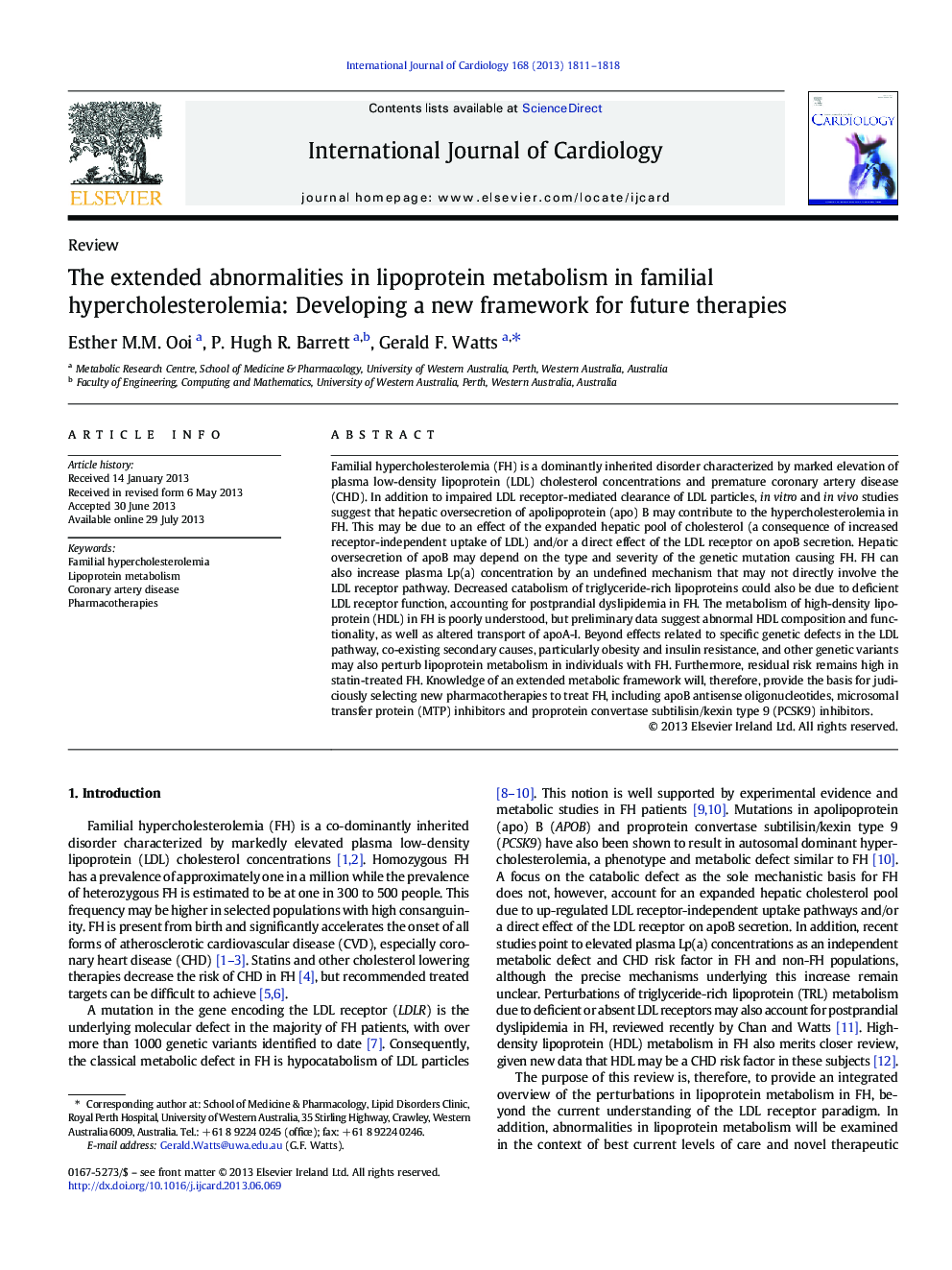| کد مقاله | کد نشریه | سال انتشار | مقاله انگلیسی | نسخه تمام متن |
|---|---|---|---|---|
| 5976103 | 1576209 | 2013 | 8 صفحه PDF | دانلود رایگان |
Familial hypercholesterolemia (FH) is a dominantly inherited disorder characterized by marked elevation of plasma low-density lipoprotein (LDL) cholesterol concentrations and premature coronary artery disease (CHD). In addition to impaired LDL receptor-mediated clearance of LDL particles, in vitro and in vivo studies suggest that hepatic oversecretion of apolipoprotein (apo) B may contribute to the hypercholesterolemia in FH. This may be due to an effect of the expanded hepatic pool of cholesterol (a consequence of increased receptor-independent uptake of LDL) and/or a direct effect of the LDL receptor on apoB secretion. Hepatic oversecretion of apoB may depend on the type and severity of the genetic mutation causing FH. FH can also increase plasma Lp(a) concentration by an undefined mechanism that may not directly involve the LDL receptor pathway. Decreased catabolism of triglyceride-rich lipoproteins could also be due to deficient LDL receptor function, accounting for postprandial dyslipidemia in FH. The metabolism of high-density lipoprotein (HDL) in FH is poorly understood, but preliminary data suggest abnormal HDL composition and functionality, as well as altered transport of apoA-I. Beyond effects related to specific genetic defects in the LDL pathway, co-existing secondary causes, particularly obesity and insulin resistance, and other genetic variants may also perturb lipoprotein metabolism in individuals with FH. Furthermore, residual risk remains high in statin-treated FH. Knowledge of an extended metabolic framework will, therefore, provide the basis for judiciously selecting new pharmacotherapies to treat FH, including apoB antisense oligonucleotides, microsomal transfer protein (MTP) inhibitors and proprotein convertase subtilisin/kexin type 9 (PCSK9) inhibitors.
Journal: International Journal of Cardiology - Volume 168, Issue 3, 3 October 2013, Pages 1811-1818
